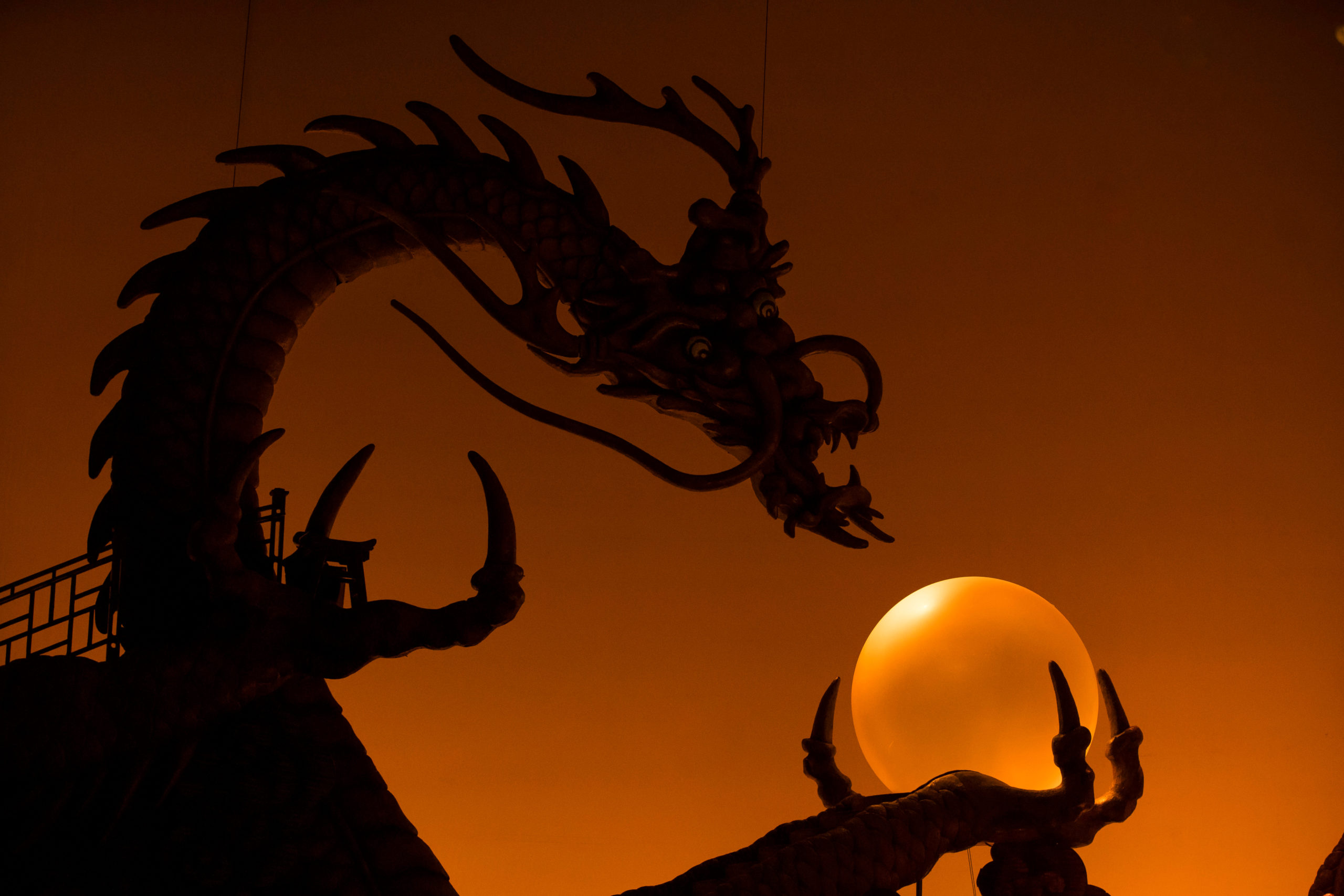Turandot 101—Characters and Plot

By: Betsy Schwarm and Angelica DiIorio
We close our 40th Anniversary Season with Puccini’s larger-than-life fantastical drama, Turandot, from May 6 to 14. This opera features some of the most gorgeous arias in the repertoire, including “Nessun dorma.”Before you head to the opera house, take some time to get to know the plot and our production!
Tickets are selling fast! Save your seats now, starting at just $39.>>
–
The Creators of Turandot
Composer – Giacomo Puccini (December 1858 – November 1924), posthumously completed by Franco Alfano (March 1875 – October 1954)
Librettist – Giuseppe Adami (February 1878 – October 1946) and Renato Simoni (September 1875 – July 1952)
Source Material: Turandot (1762), a play written by Carlo Gozzi (December 1720 – April 1806)
The Characters of Turandot
Liù (soprano) – A devoted servant of the exiled king Timur. Played by Janai Brugger, who returns to Opera Colorado after playing Micaëla in our 2014 production of Carmen.
Turandot (soprano) – Princess, Emperor Altoum’s daughter. Played by Kara Shay Thomson, who recently sang the role of Marie/Marietta in our 2023 production of Die tote Stadt.
Altoum (tenor) – The Emperor. Played by Joseph Gaines, who returns to Opera Colroado after playing Stuart Ullman in our 2022 production of The Shining.
Calàf (tenor) – A prince in exile. Played by Jonathan Burton, who returns to Opera Colorado after playing Paul in our 2023 production of Die tote Stadt.
Pang (tenor) – Chief Administrator. Played by Alex Mansoori, who returns to Opera Colorado after playing Dr. Caius in our 2018 production of Falstaff.
Pong (tenor) – Head Chef. Played by Martin Bakari, who is making his Opera Colorado debut.
Ping (baritone) – Grand Chancellor. Played by Craig Verm, who is making his Opera Colorado debut.
Timur (bass) – An exiled king, Calàf’s father. Played by Harold Wilson, who returns to Opera Colorado after playing Basilio in our 2019 production of The Barber of Seville and Ashby in our 2016 production of La fanciulla del West.
The Plot of Turandot
Setting: A fabricated version of ancient China
Turandot – Act I
“People of Beijing,” declares the emperor’s official, “it is the law that Turandot, the Pure, will wed the man of royal blood who can solve three riddles she asks him. If he fails this test, he will meet his fate with the executioner’s axe.” A crowd of listeners cheers this announcement and awaits the execution of Turandot’s latest suitor—the Prince of Persia, who will be beheaded at the rising of the moon.
Amidst the jostling crowd is the exiled King Timur and his loyal servant Liù. Timur stumbles and falls amidst the chaos, and Liù pleads for someone to help her bring him to his feet. Assistance comes from a stranger in the crowd, Prince Calàf, who instantly recognizes Timur as his father, the exiled king of Tartary. Both father and son have been in hiding, lest the usurper who seized their throne find them. That each survived the capture of their kingdom was unknown to them until this moment. In the course of their reunion, Calàf learns that Liù has stood by Timur because Calàf once smiled at her.
The Prince of Persia is brought out for his execution. Calàf calls upon the Prince’s condemner, Princess Turandot, to appear so he may curse her. She appears and wordlessly signals for the man’s death. Overcome by her beauty, Calàf decides to challenge for her hand himself. The Emperor’s bureaucratic ministers Ping, Pang, and Pong mock his intention, telling him to give up women or take one hundred wives, but not this one. They cannot dissuade him, nor can mysterious unseen voices that evoke love. Timur begs his son not to leave him alone, and Liù admits she has long carried his name in her heart. Calàf only pleads with Liù to cease weeping and remain loyal to his father. Then, striking the ritual gong, Calàf declares his candidacy.
Turandot – Act II
Lamenting the deaths of so many suitors, the three ministers hope, this time, Turandot shall feel love, not only sparing this new, unnamed challenger, but bringing peace to the kingdom. Weary of planning funerals for executed princes, they long to plan a wedding. Better yet, each imagines the joy of a quiet life by the lakes, forests, and gardens of the countryside, far from Beijing. Turandot’s father, the Emperor, asks Calàf (who has not disclosed his name to anyone) to withdraw, declaring he feels the weight of this unending sequence of deaths. Calàf declares he is determined to go forward with his attempt.
Turandot then explains why she has set the challenge of the riddles. She tells an old tale from this very kingdom, the story of Princess Lo-u-Ling, who, thousands of years earlier, was abducted and slain by a conquering prince. In remembrance of her predecessor, and in revenge for Lo-u-Ling’s fate, Turandot has determined that no prince shall win her heart, and that death shall be the price of even attempting to gain her hand. Trumpet calls signal that the time has come for Calàf to face the challenge. Turandot declaims her three riddles: What is born each night and dies at dawn? What flickers red and warm like fire but is not fire? What is like ice but burns, and in enslaving you, makes you king?
Calàf answers each correctly: hope; blood; Turandot! Not only shall he live, but Turandot shall be his! Turandot pleads with her father not to force her to accept this man, but the Emperor holds her to the bargain. Still hoping to win her love, not just her reluctant acquiescence, Calàf makes a counter-offer: learn my name by dawn and you may take my life. Turandot accepts his challenge.
Turandot – Act III
An official proclamation orders that no one shall sleep until Turandot learns the stranger’s name. Calàf reflects on the sleepless crowd in pursuit of discovering his name, which he intends to keep secret until dawn to secure Turandot’s hand. For all Calàf’s confidence, the waiting crowd is tense and wary, knowing they will suffer from Turandot’s anger if the name of the stranger is not discovered. The three ministers try to persuade Calàf to leave the city, offering him all manner of pleasures and treasures. Nevertheless, he remains resolute.
Soldiers drag in Timur and Liù for questioning, declaring they were seen talking to the stranger. It is suspected they know the man’s name, information that shall be dragged from them by any means necessary. Watching the scene, Calàf attempts unsuccessfully to intervene. He does not fear for his own fate and thinks only of Timur and Liù. However, even under torture, Liù refuses to betray Calàf and tells Turandot love gives her strength to resist. She says Turandot will feel love one day as well. At last, Liù, fearful she will succumb and betray Calàf’s identity, takes her own life.
As Liú’s body is carried off, Turandot confronts Calàf. She is angered by his resoluteness, but increasingly thrilled by his presence. His response is a passionate kiss. Feeling true love for the first time, the princess weeps, and Calàf, convinced he has won her heart, whispers to her his name. He is now at her mercy. She announces to the crowd she knows his name: it is “Love.” They embrace and all hail the power of love. Fervently, the crowd declares that love is the sun, eternity, and the light of the world.
Synopsis by Betsy Schwarm, author of the Classical Music Insights series
A Turandot Expert
You now know the full story of Turandot. You can even correctly answer her riddles and keep your head! Make sure to see all the drama play out live on stage at the Ellie Caulkins Opera House from May 6 to 14.
Tickets start at just $39 and are going fast! Get yours today.>>
What is your favorite moment in Turandot? Is there anything you are dying to know about the opera or our production? Let us know in the comments below!



as with many others my favorite moment is when Calaf sings Nesum Dorma